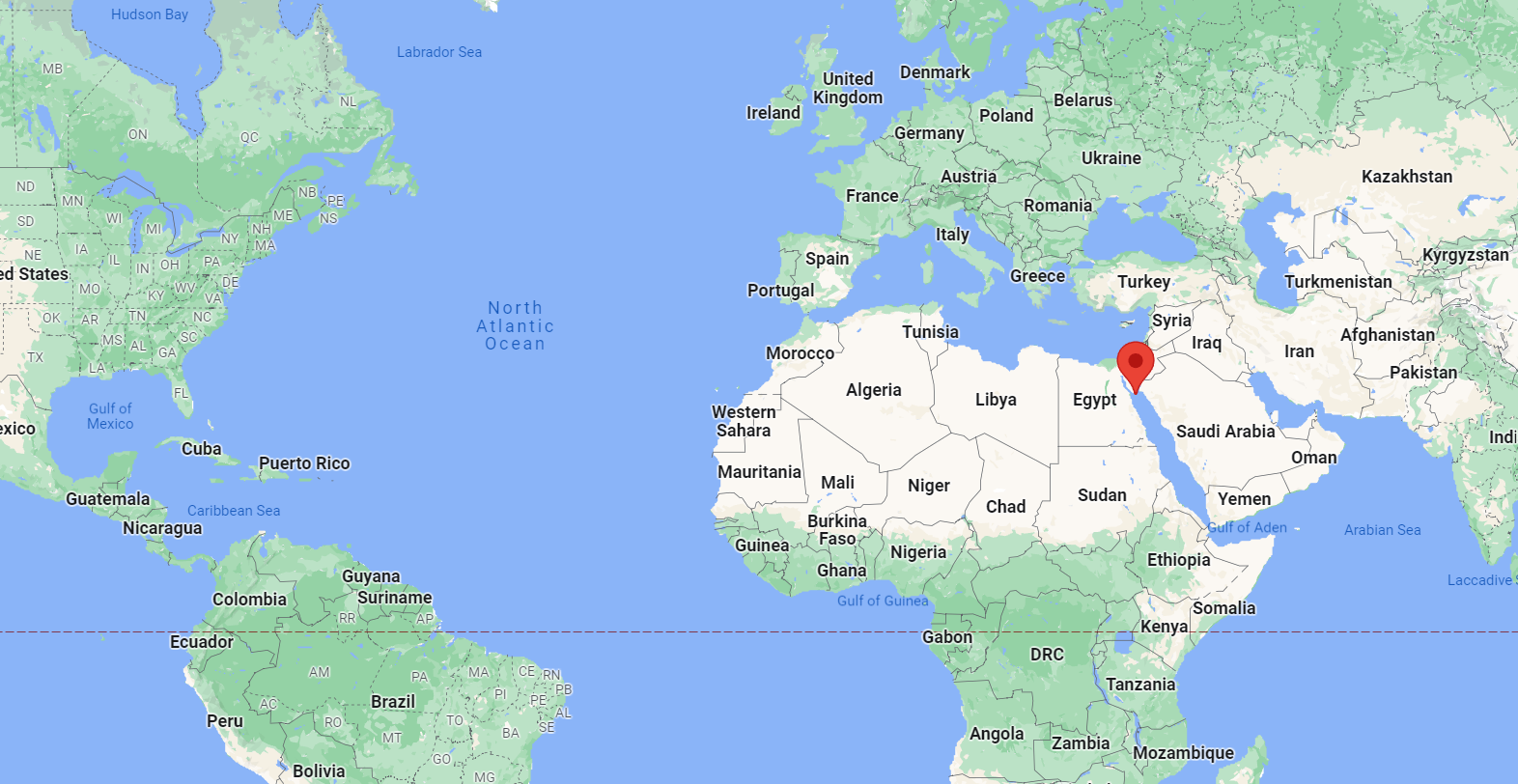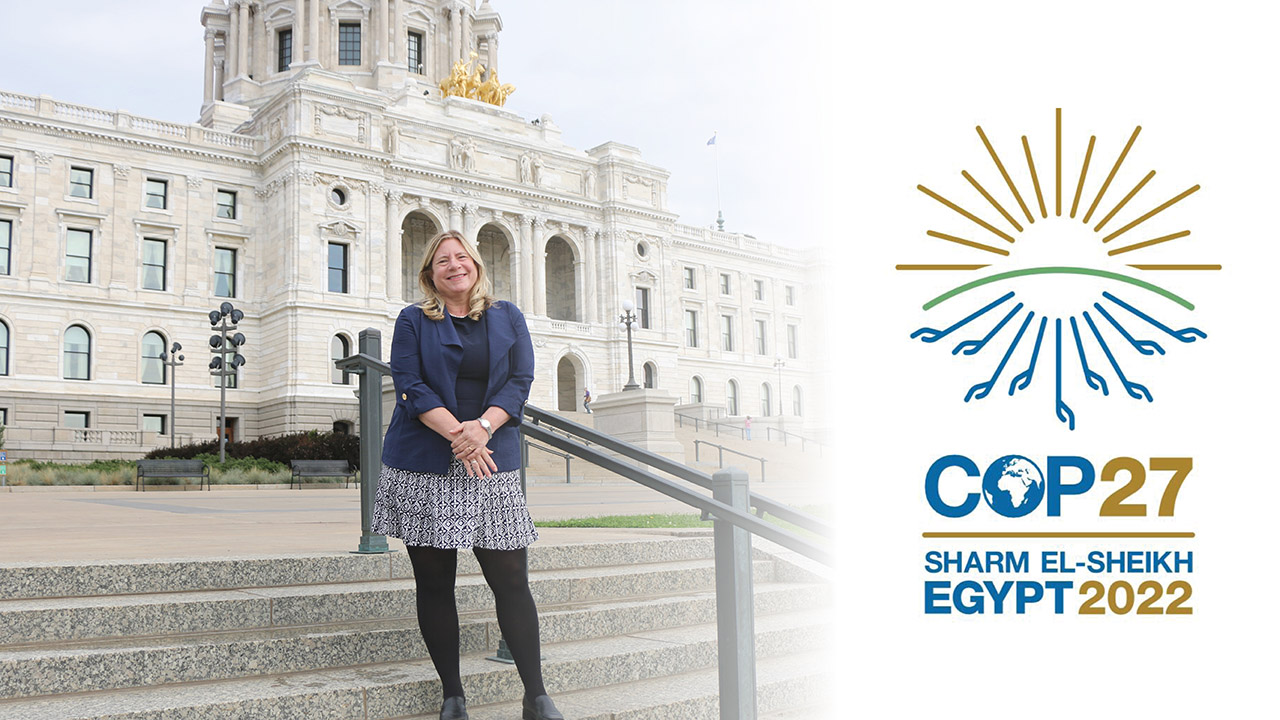
Updates
November 21, 2022 | COP27 closes with consensus on vital issues
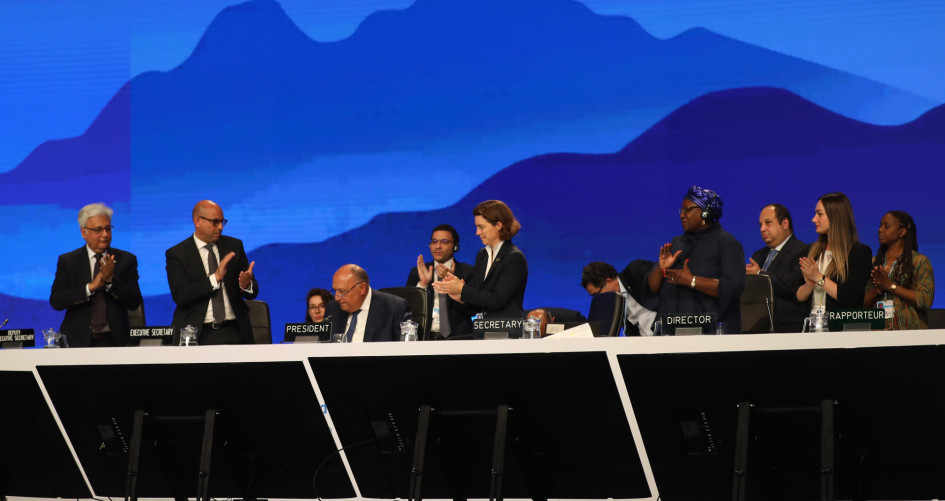
Almost 200 countries reached U.N. process-required consensus on vital issues on Nov. 20—at a time when it was essential to do so.
In a historic deal, negotiators agreed to launch a fund to pay poorer nations for loss and damage caused by climate change. For nearly thirty years, leaders of the countries hardest hit by climate change have sought attention from wealthy nations most responsible for the carbon emissions putting them at risk.
At COP27, on the first day, the United Nations agreed to put loss and damage on the conference agenda for the first time ever. To my amazement, they reached an agreement to move forward on loss and damage payment! Applause broke out at the end negotiation in Egypt.
“On African soil, the voice of the acutely affected communities were finally heard.”
United Nations statement
The United Nations released their statement: “On African soil, the voice of the acutely affected communities were finally heard.” Hundreds of times during COP27 delegates and all attendees heard that seventeen of the twenty most climate change-vulnerable countries are African nations.
The summit reaffirmed the commitment to try and limit the average rise in global temperatures to 1.5 degrees Celsius by 2100. This is the crucial temperature threshold climate scientists warn us loudly against exceeding, to avoid the worst impacts of climate change. The world is now 1.1 degrees Celsius warmer than it was in the 19th century.
The United States and the European Union worked impressively so that today a total of 150 nations have committed to reducing methane emissions 30 percent by 2030. Remember: about one-half of our current climate change is caused by methane emissions, so the Global Methane Pledge will be the fastest way to mitigate greenhouse gas emissions. We need the other UNFCCC treaty signers to urgently join the Global Methane Pledge.
The United States was also successful in resuming bilateral talks with China, and with Japan struck a major deal with public and private funding to speed Indonesia’s coal phasedown.
Thank you to President Joe Biden and Special Presidential Envoy for Climate John Kerry for their enormous work. Much technical language embedded in the final COP27 agreement text will take time to interpret. Get the scoop on November 30 with me and other members of the Minnesota delegation, including Patrick Hamilton of the Science Museum and Dr. Nfamara K. Dampha of the University of Minnesota.
November 17, 2022 | G20 declaration potential boost for climate talks
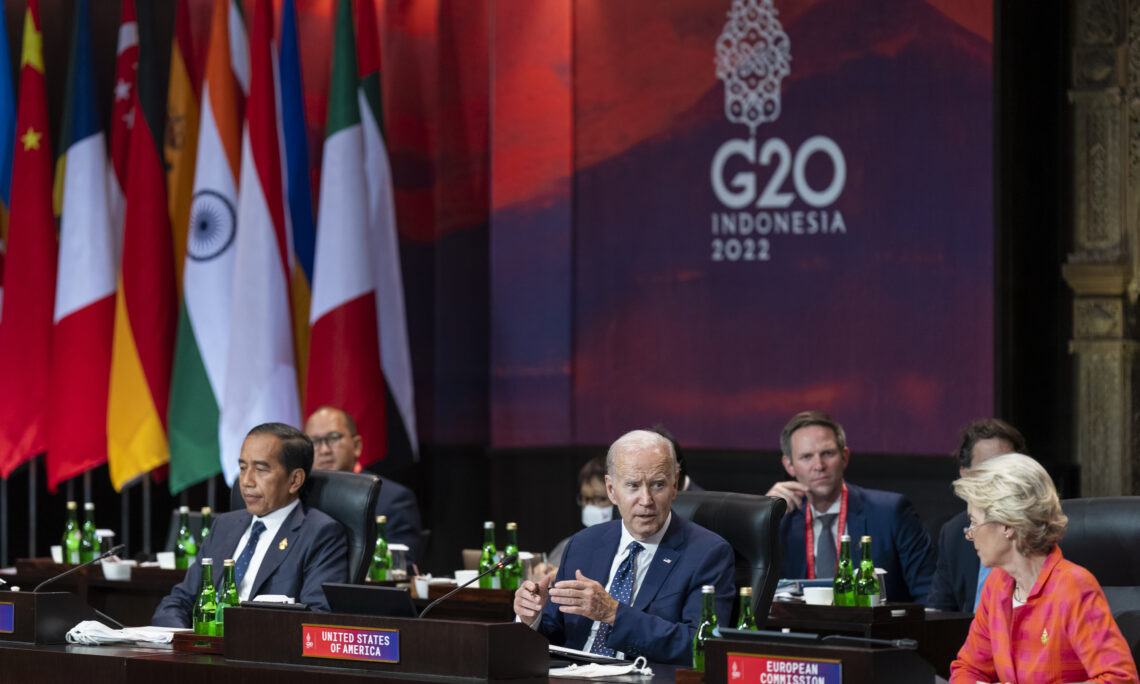
Not every negotiation influencing COP27 outcomes happens in Sharm El-Sheik. This week, G20 leaders met in Bali, Indonesia, where they affirmed a commitment to climate action: “Mindful of our leadership role, we reaffirm our steadfast commitments, in pursuit of the objective of the United Nations Framework Convention on Climate Change to tackle climate change by strengthening the full and effective implementation of the Paris Agreement and its temperature goal.”
Delegates at COP27 have been watching the G20 summit closely for signs that developed nations are willing to make new commitments on climate.
The G20 leaders said the delegates at COP27 must “urgently scale up” efforts on the issues of mitigation and adapting to climate change, including “the phasedown of unabated coal power, in line with national circumstances and recognizing the need for support towards just transitions.”
India, the world’s second-largest buyer of coal, wants countries to agree to phase down all fossil fuels, rather than a narrower deal made last year at COP26 to phase down coal.
The G20 leaders stated in writing:
“We will play our part fully in implementing the (COP26) Glasgow Climate Pact.”
The statement also reaffirmed an international goal to phase out “inefficient fossil fuel subsidies.” They also urged the developed nations to provide $100 billion a year for climate mitigation.
“This will require meaningful and effective actions and commitments by all countries.”
More progress for climate action at G20 Summit
The United States and Japan have brokered an agreement to provide $20 billion (half from public funding, half from private finance) for the next 3-5 years to accelerate Indonesia’s coal phase-out, through a Just Energy Transition Partnership (JETP). This is a significant commitment, given that Indonesia is the world’s tenth-largest emitter of carbon dioxide.
The Indonesian government agreed at the G20 Summit to peak carbon emissions from its electricity sector by 2030, seven years earlier than their previous pledges.
In separate news, COP27 will not finish their work until, at soonest, the evening of Saturday, November 19, and possibly later. Fresh Energy will publish my summary on Monday, November 21, after COP27 ends.
November 16, 2022 | Fresh Energy again on the global stage!
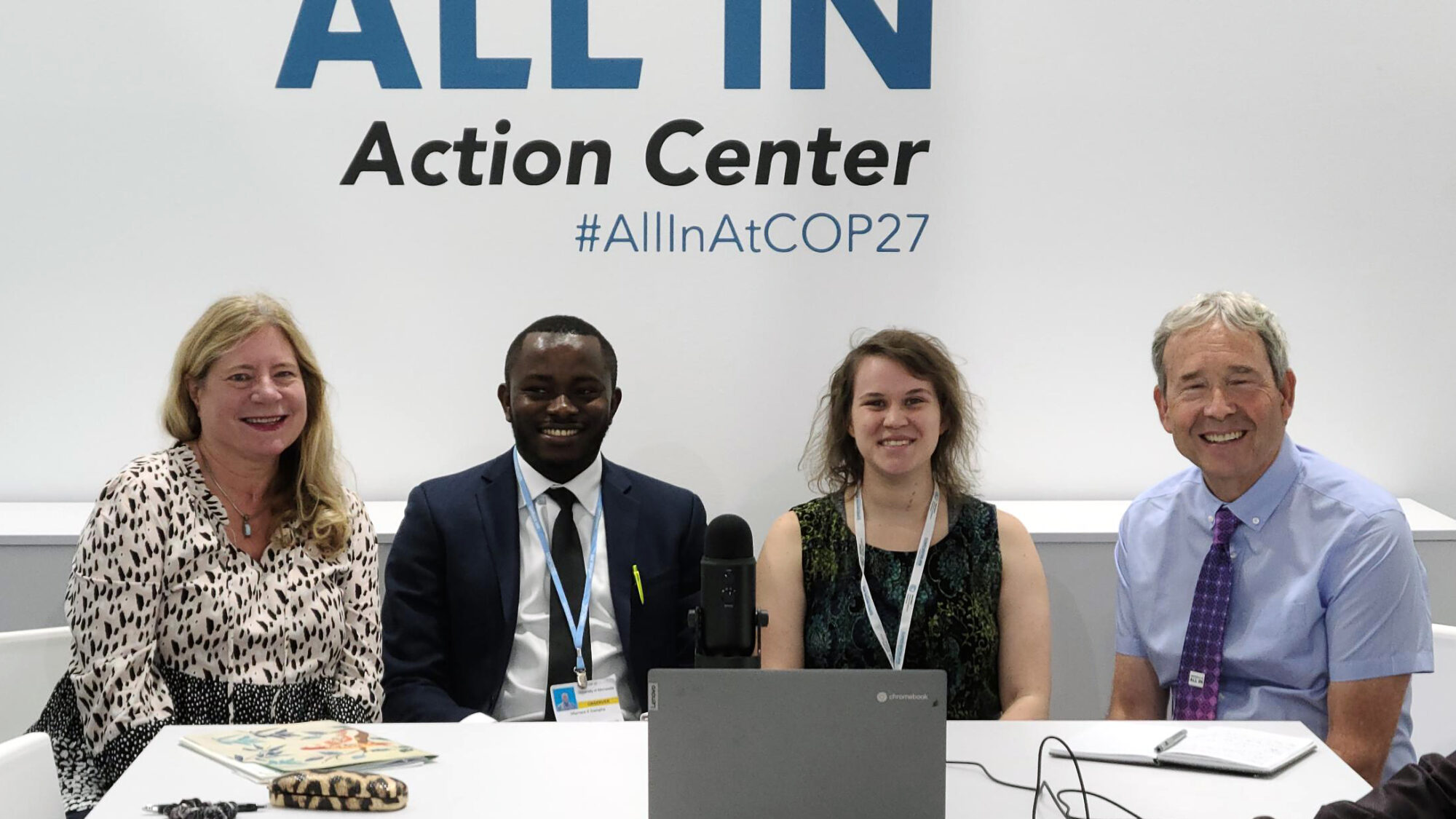
Fresh Energy created a panel discussion held today at COP27. Our title: Minnesota’s Role in Speeding Decarbonization of the U.S. Midwest. We had 20 minutes of remarks, followed by 40 minutes of questions and discussion with the panel and audience. Our speakers in addition to the moderator, J. Drake Hamilton, included Dr. Nfamara K. Dampha at the University of Minnesota, Betsy Ruckman, a senior at the College of St. Ben’s, and Patrick Hamilton of the Science Museum of Minnesota.
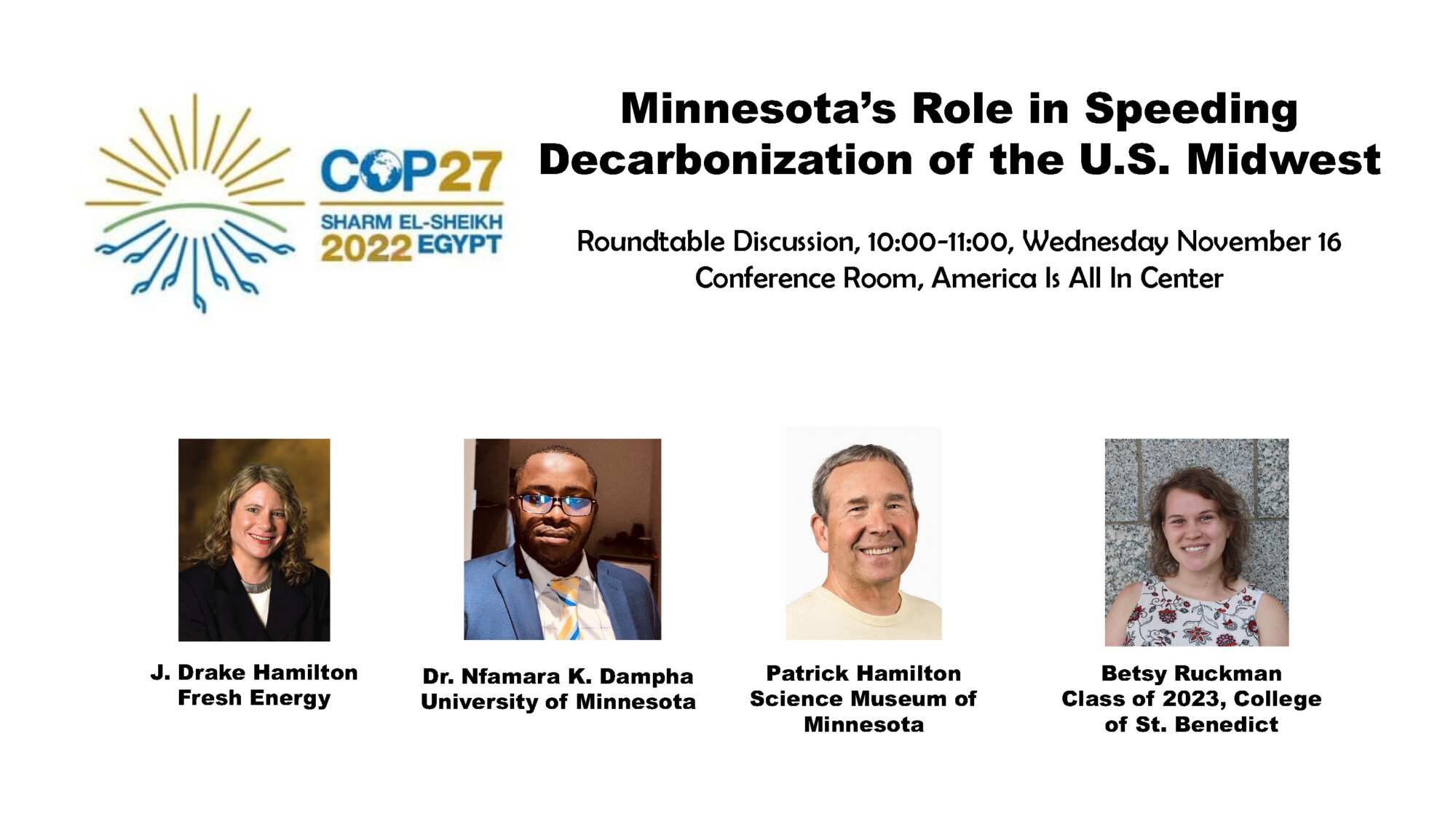
We recorded the event and will post it on the Fresh Energy website by the end of November.
And early today, I sat in the front row to see the always-impressive Secretary of Energy Jennifer Granholm. She had pulled together a five-woman panel! Hallelujah!
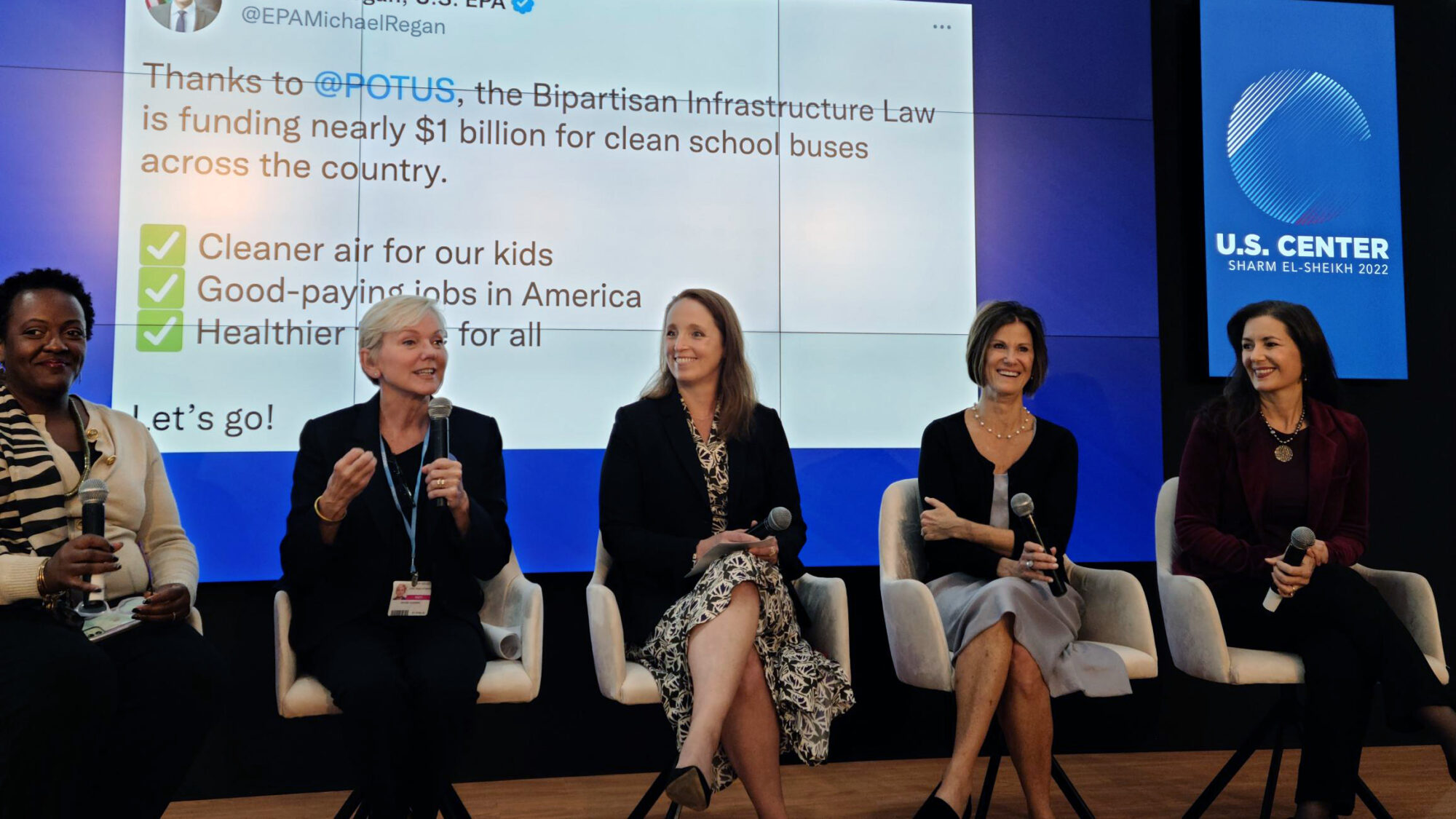
The U.S. Department of Energy (and allies) spoke about “Breaking through Climate Deadlock with Clean Energy Legislation: Accelerating Nationwide Demonstrations and Deployment.” Our Department of Energy is known throughout COP27 as being experts on emerging zero-carbon energy, as well as for their terrific communications skills. The panels are always full of lots of new information.
November 15, 2022 | U.S. and China restart climate talks
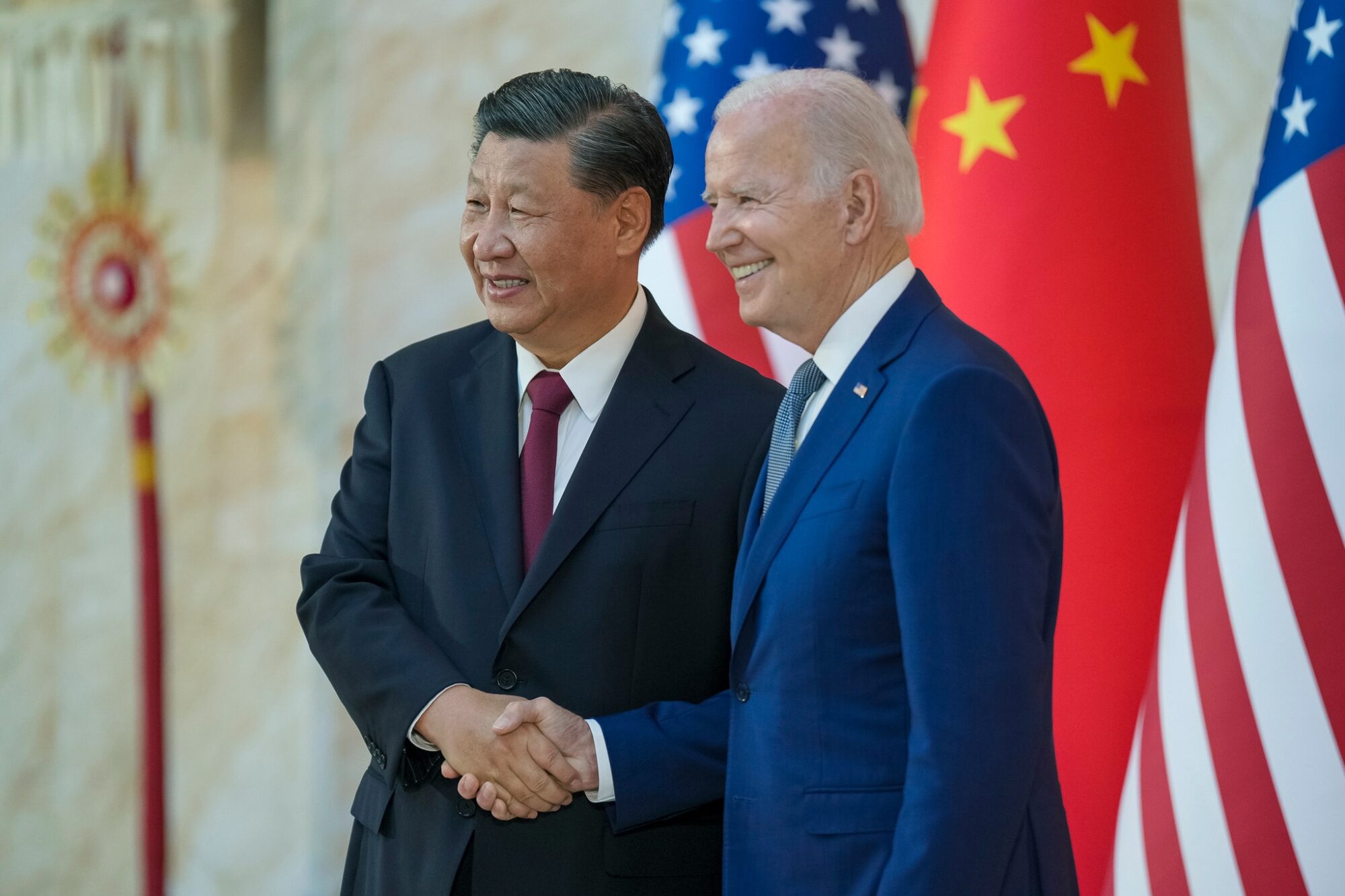
The leaders of the two largest greenhouse gas emitters agreed at their November 14 in-person discussion to revive bilateral climate talks. President Biden flew directly from COP27 to Asia, in part to hold this key meeting with President Xi Jinping in Bali, Indonesia. The two are old friends but had not spoken in person since Biden was elected in 2020.
Last week I asked Biden’s lead climate negotiator, John Kerry, what his top goal was. He immediately named the need to restart negotiations with President Xi to advance global efforts to slash greenhouse gas emissions. The U.S. sent a signal to other nations with this successful meeting that both nations are committed to international climate efforts.
President Biden said after the meeting with President Xi: “We’re going to keep working with our partners to support the most vulnerable countries in building resilience to climate impacts and to align global ambition with the 1.5 degree Celsius goal while supercharging our clean energy transition.”
I will report to you by week’s end what evidence has emerged in the COP27 agreements.
Please stay tuned!
November 14, 2022 | Spoke with new National Climate Advisor about the need to ensure the Inflation Reduction Act is equitable
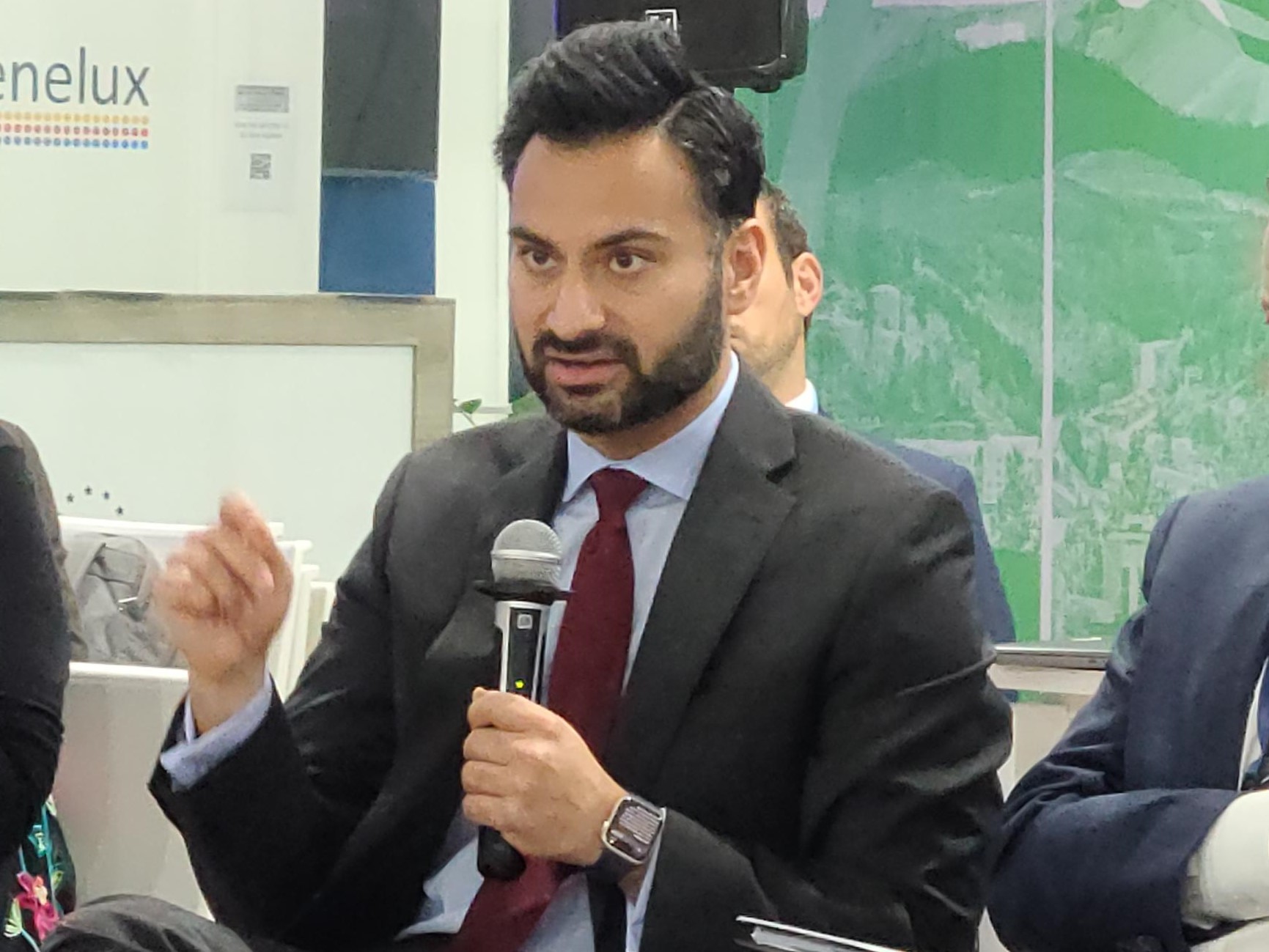
I was invited to speak at the November 11 America Is All In town hall with Ali Zaidi, who recently succeeded Gina McCarthy as White House National Climate Advisor.
Zaidi spoke about the Inflation Reduction Act, the most aggressive legislative action on climate in American history. Zaidi’s job is to work closely with John Podesta, a senior advisor to President Biden, to use the Inflation Reduction Act to lower energy costs for American families, create good-paying jobs, advance environmental justice, and position the U.S. to meet the president’s ambitious climate goals.
Climate change disproportionately impacts low-income communities and communities of color. I praised Zaidi for his work to build an economy that works for working families, including communities that have been underinvested and underserved for too long. I noted that President Biden’s Justice40 Initiative will deliver 40 percent of the overall benefits of climate and clean energy investments to disadvantaged communities.
Representing Fresh Energy at COP27, I asked Zaidi and his team to be transparent and frequently report to the public on the benefits from IRA deployment for those communities.
Biden goes to Asia for his first in-person meeting as president with China’s President Xi
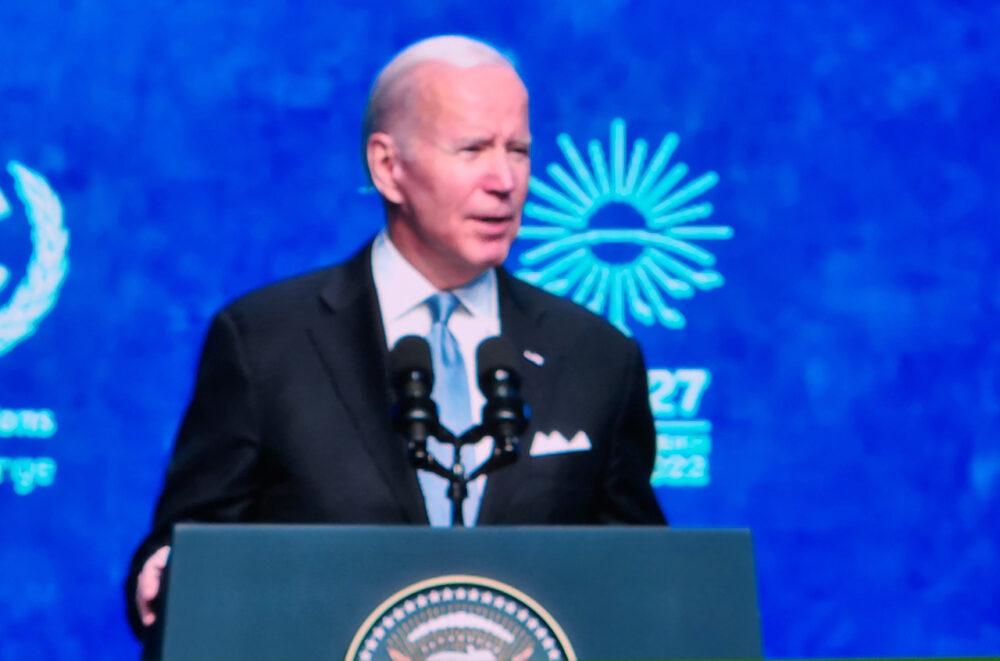
Also on November 11, President Biden gave a speech to a room seating about 5,000 people, including U.N. Secretary-General António Guterres and Egyptian President Abdel Fattah El-Sisi. I was very pleased to get that invitation. Many Americans were present, and there were also many people from countries around the globe. Conversations abounded among us as we waited in the room for the speech.
The speech was covered in front-page news stories, and the full text is available on the White House website.
Today, November 14, President Biden meets in person with President Xi of China, about critical climate action (as well as other topics). I will report on China’s actions at the end of COP27 — stay tuned!
November 11, 2022 | Less than two percent of climate mitigation expenditures are now spent on cutting methane
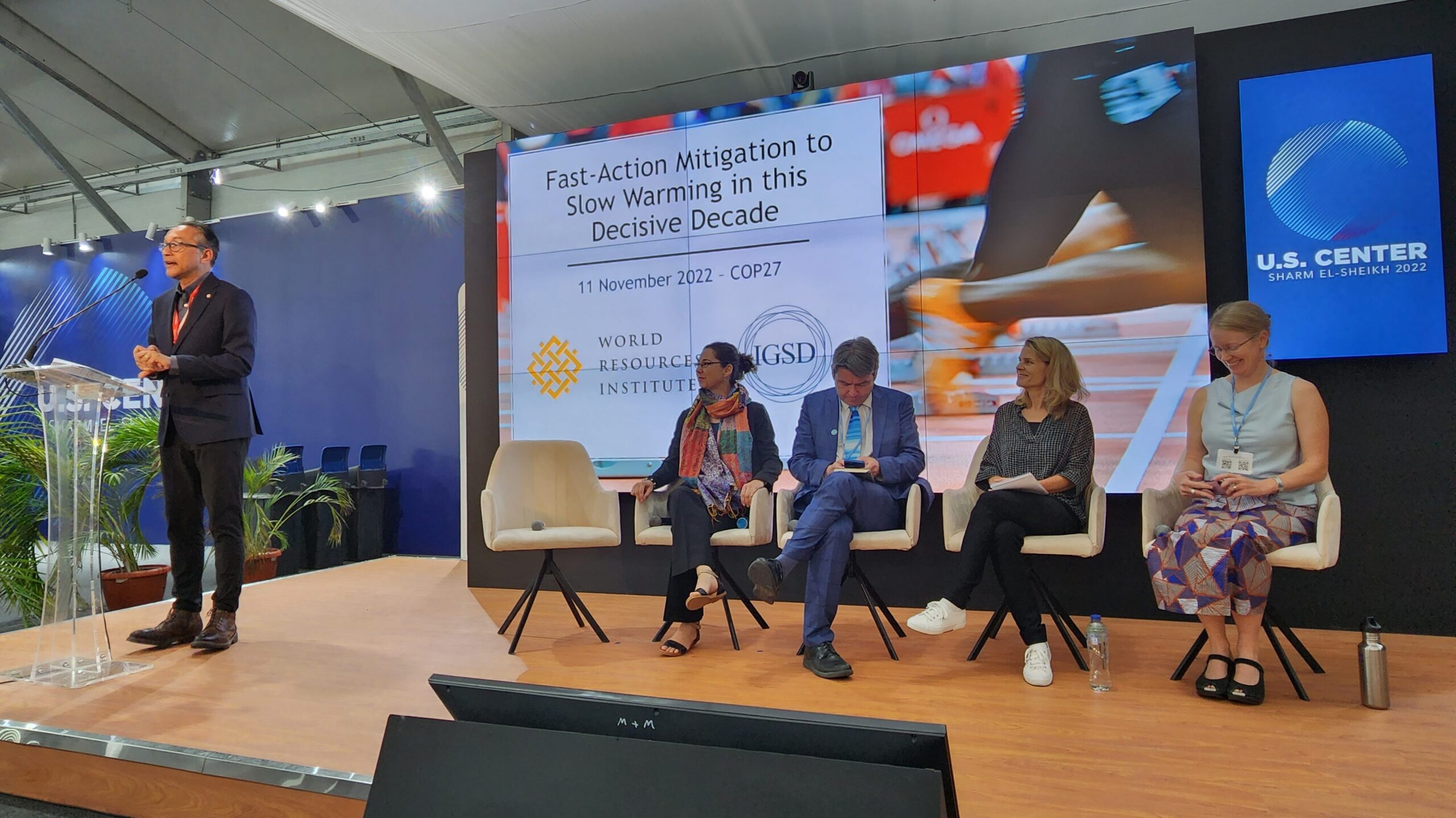
Cutting methane emissions is the fastest and biggest mitigation strategy. Short-lived climate pollutants including methane contribute about half of the warming associated with CO2. We are in a sprint to reduce methane emissions so as to stay in the race to cut carbon dioxide emissions.
About half of all rogue methane emissions are from oil and gas. Even though it’s cost-effective to cut methane emissions, oil and gas companies are not doing it because it is more profitable to extract oil and gas. This is why methane regulation is needed. The IRA will be a game changer because it will penalize oil and gas companies for methane emissions.
Less than two percent of climate mitigation expenditures are now spent on cutting methane. To date, 130 nations have signed the Global Methane Pledge (to reduce methane by 30 percent by 2030. More announcements are expected at COP27 in the next week.
November 10, 2022 | Together for Implementation: The Goal of COP27
Ahlan (hello and welcome in Arabic) to everyone from Sharm el-Sheikh! Today, I was interviewed by Paul Huttner, host of Minnesota Public Radio’s Climate Cast. Tune in to the interview to hear from me and my husband, Patrick Hamilton, who is attending COP on behalf of the Science Museum of Minnesota.
First meeting in Egypt with lead U.S. negotiator
Yesterday was a 21-hour work day for me, and for good reason! I had the opportunity to meet with John Kerry, Special Presidential Envoy for Climate at the United States Department of State. He was directly appointed by President Biden in January 2021 and leads the extensive (and intensive) international negotiations for our country on climate change action.

Of course, I took advantage of the offer—this was the third time, at now three COPs (Paris in 2015 and Glasgow in 2021) that I have had up to an hour of time to talk candidly with Kerry. Every time we have met, Kerry has asked me knowledgeable questions about how Minnesota is helping the country meet its national climate goals (and beyond that). On the same day, I photographed Kerry on the stage before a group of 100 business CEOs and journalists.
John Kerry’s work focuses on many issues, a big part of which is continuing to meet with China. In Glasgow, President Xi committed to bringing China’s detailed plan for how the country will meet the goal of reducing methane emissions by 30% by 2030 to COP27. The Chinese negotiating team is on site, and Kerry is working to sew up the details in Sharm el-Sheikh.
The tagline for the conference, “Together for Implementation,” is timely and refers to the need to focus on the deployment of the rules finished in the Paris Agreement Rulebook by 197 nations in Glasgow last year.
Kerry’s top goal for the past year has been meeting with private capital firms and leaders, aiming to unleash the trillions of dollars each year that will be needed to finance renewable energy (solar, wind, and storage) projects in the global South. There is special interest at this “African COP” in getting low-cost financing for the 17 African nations that make up the bulk of the world’s 20 most climate change-vulnerable nations.
I have had the benefit over the past five days to meet personally with very knowledgeable people from Egypt, Uganda, the Gambia, Nigeria, Kenya, and a South African Member of Parliament, many of whom lead nongovernmental organizations or work for their national governments. All agree that Kerry is right: private capital investors are afraid to invest in developing countries. They also agree that Kerry is on the right path to find multiple ways to de-risk investments by the most plentiful capital—private capital.
We—both Kerry’s negotiating team and Fresh Energy—expect more meetings to update us on progress over the last nine days of COP27 and I will keep you updated on the consensus decisions reached in Sharm. Register and join me on Wednesday, November 30, for a webinar debriefing these decisions and more.
Some unusual and public statements to further light the fire under us
I thought I would sign off this blog with some spectacular or very troubling statements.
“One billion people on the planet have no access to energy. You have to get people more energy to get them out of poverty. With no energy, you cannot lead a dignified life.”
“The countries with the most money in the entire world, have not transitioned to renewable energy,” said Damiola Ogunbiyi, CEO of Sustainable Energy for All, Nigeria. “Some news you may not know from my country: when I started working on solar energy, there were perhaps 100-200 small solar panels on individual buildings across the whole nation of Nigeria. Today, in 2022, Nigeria is connecting 100,000 solar systems each month.”
“Only five percent of solar investment in 2022 went to the entire continent of Africa,” Dr. Ajay Mathur, Director General, International Solar Alliance. “Renewables are not an overnight solution. Projects create policies, especially large-scale projects in solar panels, batteries, and inverters.”
“The International Energy Agency determined that we have to deploy—starting in 2022—six times as much renewable energy as we are installing today, to meet our United Nations consensus to meet our goal of keeping climate change to no more than 1.5 degrees C,” said John Kerry on November 9, 2022.
“Together for Implementation” in other words, means that those of us in the richest nations: COMMITMENTS MUST BE HONORED.”
More coming tomorrow on this blog. Thank you for reading!
November 8, 2022 | Macron backs climate cash trillions

Climate change talks have long been stymied over demands for transfers of billions of dollars. However at COP27, on Monday, November 7, French President Emmanuel Macron backed a new push for the conversation to be measured in trillions. Speaking last on the agenda, Macron gave his support to elements of a plan outlined by Barbados’ Prime Minister Mia Mottley that seeks to overhaul the way climate finance flows to the countries that need it most. Macron called for a “huge shock of concessional financing,” suspension of debt for disaster-struck countries, and putting the International Monetary Fund (IMF) on notice. It was a speech that signaled a shift in tone that developing countries have been long been pushing for.
During the first day of official speeches, leader after leader from wealthy countries highlighted the need to demonstrate “solidarity” with developing countries after a year in which calamitous disasters and a bubbling debt crisis helped reshape the often contentious conversation about climate finance. Money is a central focus of this year’s climate talks given the widening gap between what has been pledged and what is needed. It extends from everything from clean energy transitions to hardening countries’ defenses against climate impacts to potential payments for irreparable climate damages—known as “loss and damage.”
Macron called for the rules of the IMF, the World Bank, and other major lenders to be changed to make clauses that halt debt repayments in the event of a disaster far more common.
“What you’re asking of us in terms of debt reimbursement and guarantees, when we are affected by a climate shock, when we are a victim of a climate accident, to some degree, there must be a suspension of those conditions,” said the French President Macron.
While the need for finance to spur the transition to clean energy across the world and guard against the ravages of climate change is already stretching into trillions, the U.N. climate system remains stuck on a broken decade-old promise from rich countries. They pledged to deliver $100 billion a year in climate finance by 2020, but that commitment has not been met.
The Barbados leader’s call to arms and Macron’s heavyweight backing brought a new reality and scale to the financial discussion. On November 7, Macron said that by next spring, global financial institutions would need to devise ways to “come up with concrete solutions to activate these innovative financing solutions and to help us to provide access to new liquidities.”
Macron paid tribute to Mottley’s “force of character” and said the two leaders—one who commands an economy 600 times larger than the other—had agreed to form a group of “wise minds” to develop suggestions for the overhaul of the international financial system.
November 7, 2022 | COP27 Begins Under the Banner “Together For Implementation”(of the Paris Rulebook)


Hello from COP27, the African COP located in Sharm el-Sheikh, a resort city on the Sinai Peninsula on the Red Sea. To the right are a few photos of my flight into “Sharm.” Mine was one of at least 10 flights heading from Cairo to COP on the morning of Saturday, November 5—the terminal was very busy and I was amazed to see a large, high-capacity jet so full. Indeed, EgyptAir held our plane on the ground for an extra 20 minutes, to fill the flight with Africans from Uganda, Nigeria, Togo, and South Africa, whose flights from their home countries had been delayed. As the plane took off, I was proud to be headed to the city of Sharm el-Sheikh, where so many residents and over 35,000 conference registrants were focused on addressing the climate crisis.
This year at COP27, governments MUST cooperate on three big issues:
- climate impacts killing people and destroying their economies;
- accelerating climate mitigation ambition;
- and delivering greatly scaled-up climate financing to vulnerable nations.
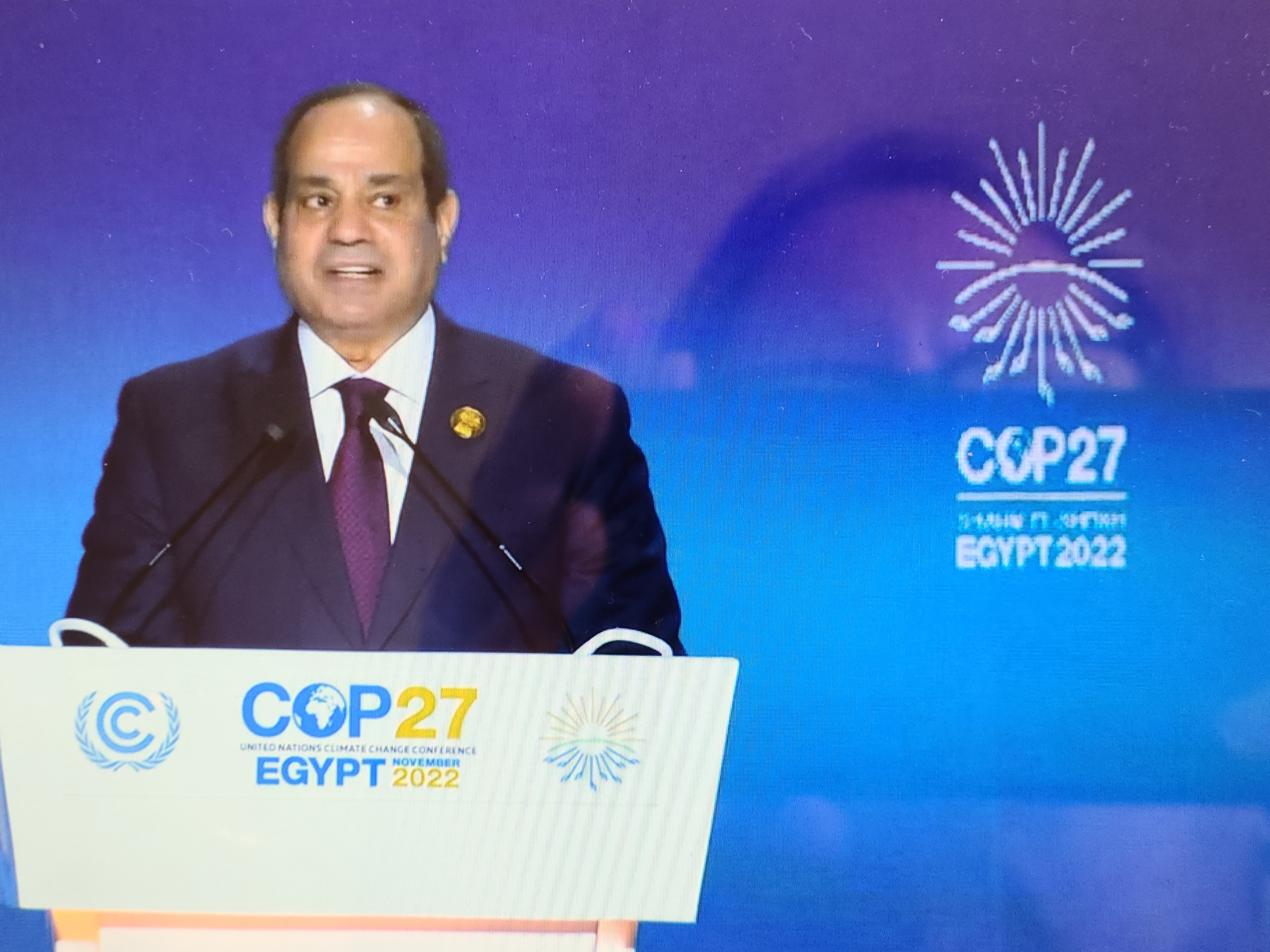
This morning I watched several live press conferences from COP27—all participants lived in Africa and despaired of their continent as “Ground Zero” for climate victims. Speakers talked expertly and passionately about the “immoral, unjust, and criminal” yet still unmet promises made by developed countries.
This COP needs to provide global finance for Loss and Damage due to climate change. Indeed, for 30 years we have failed to put Loss and Damage on the climate agenda. Lorraine Chiponda of Don’t Gas Africa described the back-to-back, frequent, devastating climate events in the global South in 2022. “The ones most responsible for climate change—the rich nations—refuse to cut their global debt of emissions.”
“The ones most responsible for climate change—the rich nations—refuse to cut their global debt of emissions.”
Lorraine Chiponda, Don’t Gas Africa
Ms. Chiponda focused on the rich nations’ commitment in 2009 to finance $100 billion every year for the most suffering nations. The truth is that rich nations have not met their obligations.
Mohamed Adow, the director of Power Shift in Africa, a Kenyan, documented his country’s worst drought in 40 years, devastating East Africa right now. Millions of Kenyans face losing their herds and becoming destitute; the drought in East Africa has killed hundreds of elephants and zebras in the last month. Adow called on rich nations that promised at COP26 in Glasgow to keep their promise: to double adaptation to climate change funding to vulnerable nations.
COP27 is the time to meet all of those commitments. This year’s fatal floods in Pakistan, devastating floods in Nigeria, withering droughts in Somalia, Kenya, and Ethiopia should haunt and activate the U.N.’s negotiators.
A press conference participant ended with a statement: “Sharm can’t become a sham; COP27 must bring implementation to the Paris Agreement Rulebook goals.”
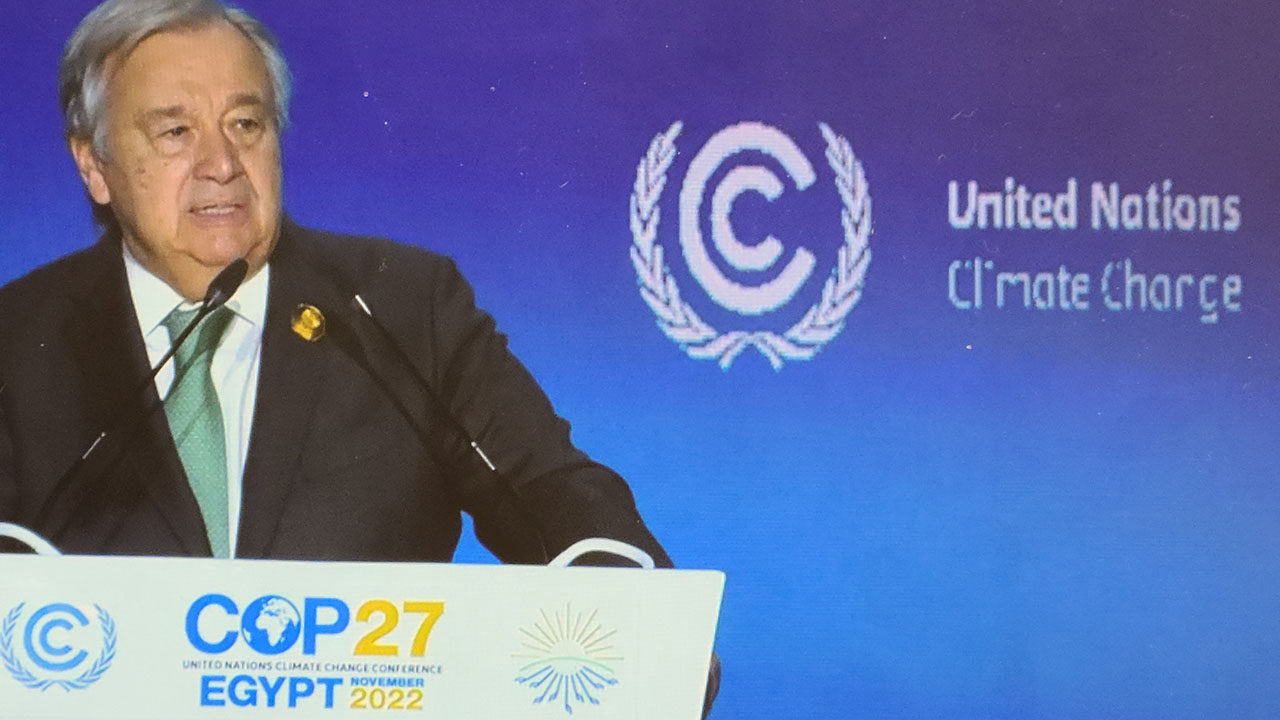
“We are losing. Developed countries must transition their economies within this decade to clean energy. I am calling for an historic pact between developed and emerging nations, in solidarity, to reduce emissions in this decade within the world’s 1.5 degree C goal.”
U.N. Secretary-General Antonio Gutteres
Next, a live camera covered the opening of COP27. At least 100 national leaders are attending in person. U.N. Secretary-General Antonio Gutteres warned from the podium: “We are losing. Developed countries must transition their economies within this decade to clean energy. I am calling for an historic pact between developed and emerging nations, in solidarity, to reduce emissions in this decade within the world’s 1.5 degree C goal.”
Over the next two weeks, I will be in many, many meetings and speaking my call for taking swift deep action to meet the COP27 watch words: “Together For Implementation.”
Please check back daily for updates from COP on what is working and what is in progress.
November 6, 2022 | COP27 starts with diverse nations banded together on deforestation pledge
On November 6, the beginning day of COP27, more than 25 countries announced together to end deforestation by 2030 and to hold each other accountable.
More than 140 nations at the COP26 in Glasgow promised to end deforestation by the end of this decade. Chaired by the United States and Ghana, 25 nations banded together at the start of COP27 to keep the deforestation pledge made in Glasgow. They also announced billions of dollars in additional financing for the effort.
October 25, 2022 | Date set for Debriefing COP27 webinar!
Register and join J. and members of the Minnesota delegation, including Patrick Hamilton of the Science Museum and Dr. Nfamara K. Dampha of the University of Minnesota for a webinar on November 30, 2022, at 12 p.m. Central to debrief COP and dig into discussions around climate finance, mitigation, and adaptation and the role Minnesota and the Midwest can play in decarbonization. Register here.
October 11, 2022 | J. Drake Hamilton digs into the details of climate finance on an episode of Decarbonize: The Clean Energy Podcast.
Get the inside scoop! In this episode of Decarbonize: The Clean Energy Podcast, J. discusses what she’s anticipating from this year’s global climate change conference, COP27, particularly within the field of climate finance for global climate change mitigation and adaptation.
Decarbonize can be streamed online, or you can find it on your favorite podcasting app.
October 5, 2022 | Unpacking climate finance, mitigation, and adaptation at COP27
Of special significance at COP27 is climate finance. Learn more about climate finance, what it means for COP discussions, and beyond. Read more.
September 21, 2022 | Looking ahead to COP27 in Sharm El-Sheikh
After a year of exciting federal and state developments for clean energy and climate, representatives from Minnesota and the U.S. are gearing up to attend the global climate summit, COP27, the U.N. Climate Change Conference in Sharm El-Sheikh, Egypt. Read more.

